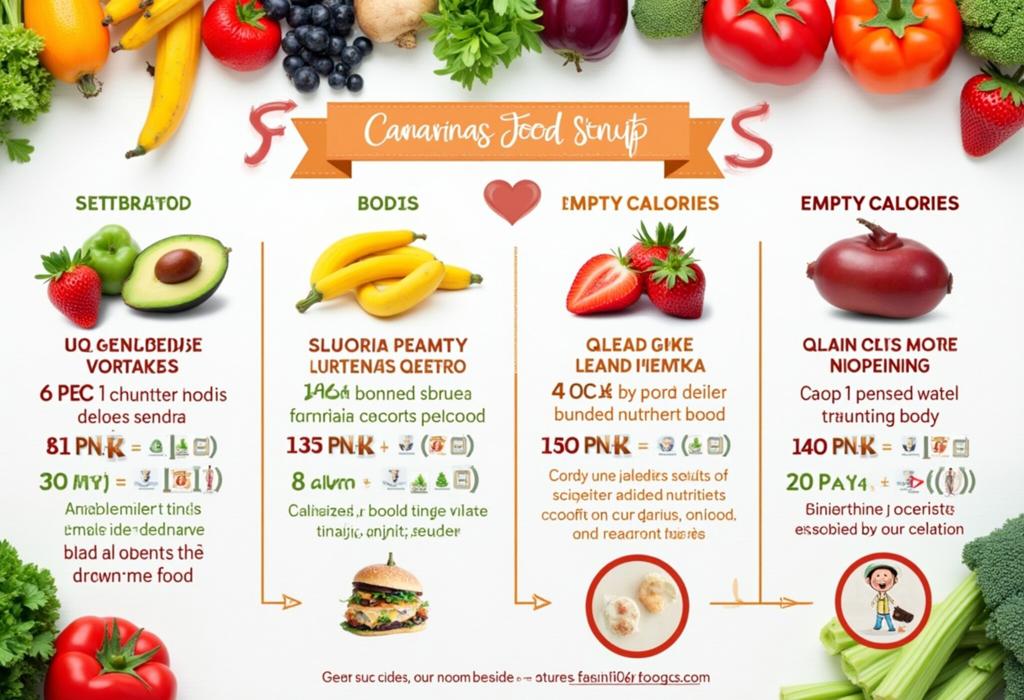For more details on this content, please review the step-by-step guide and frequently asked questions.
Are All Calories Created Equal?

Step-by-Step Guide
Understanding Calories
Calories are a measure of energy. They come from carbohydrates, proteins, and fats in the foods we eat. Understanding what calories are and how they function in the body is the first step in comprehending their role in our diet.
Types of Calories
Not all calories are created equal. Calories can be classified into different types based on their source: their origin (e.g., animal, plant), their nutrient content (e.g., empty calories vs. nutrient-dense calories), and their effect on the body (e.g., how they are metabolized).
Nutrient-Dense vs Empty Calories
Nutrient-dense foods are high in vitamins, minerals, and other beneficial nutrients relative to their calorie content. In contrast, empty calories come from foods that have little to no nutritional value, such as sugary snacks, sodas, and processed foods.
Metabolic Differences
The body metabolizes different food sources in distinct ways. For instance, proteins require more energy to digest than fats and carbohydrates, and fiber-rich foods can help regulate blood sugar levels and promote feelings of fullness.
Impact of Food Composition
The composition of a calorie can affect how your body uses it. For example, calories from whole foods can promote better health outcomes than calories from processed foods, even if the calorie counts are the same.
Role of Glycemic Index
The glycemic index (GI) measures how quickly food impacts blood sugar levels. Foods with a high GI can lead to rapid spikes and crashes in blood sugar, which can affect hunger and energy levels differently than whole foods with a low GI.
Caloric Needs Vary
Individual caloric needs vary based on factors such as age, gender, physical activity level, and overall health. Therefore, understanding your body’s specific needs is vital for effective weight management and health.
Quality Over Quantity
Focusing on the quality of calories rather than just their quantity is essential for lasting health. A balanced intake of protein, healthy fats, whole grains, and plenty of fruits and vegetables supports overall wellbeing.
Practical Tips for a Balanced Diet
To ensure a balanced diet, aim for whole foods, prioritize a variety of food groups, and prepare meals at home when possible. Planning meals and snacks can help ensure you meet your nutritional goals.
Maintaining a Sustainable Lifestyle
Sustainability in diet is crucial. Consider moderation and making gradual changes instead of quick fixes. It is important to enjoy foods in moderation while ensuring your caloric intake is appropriate for your health goals.








